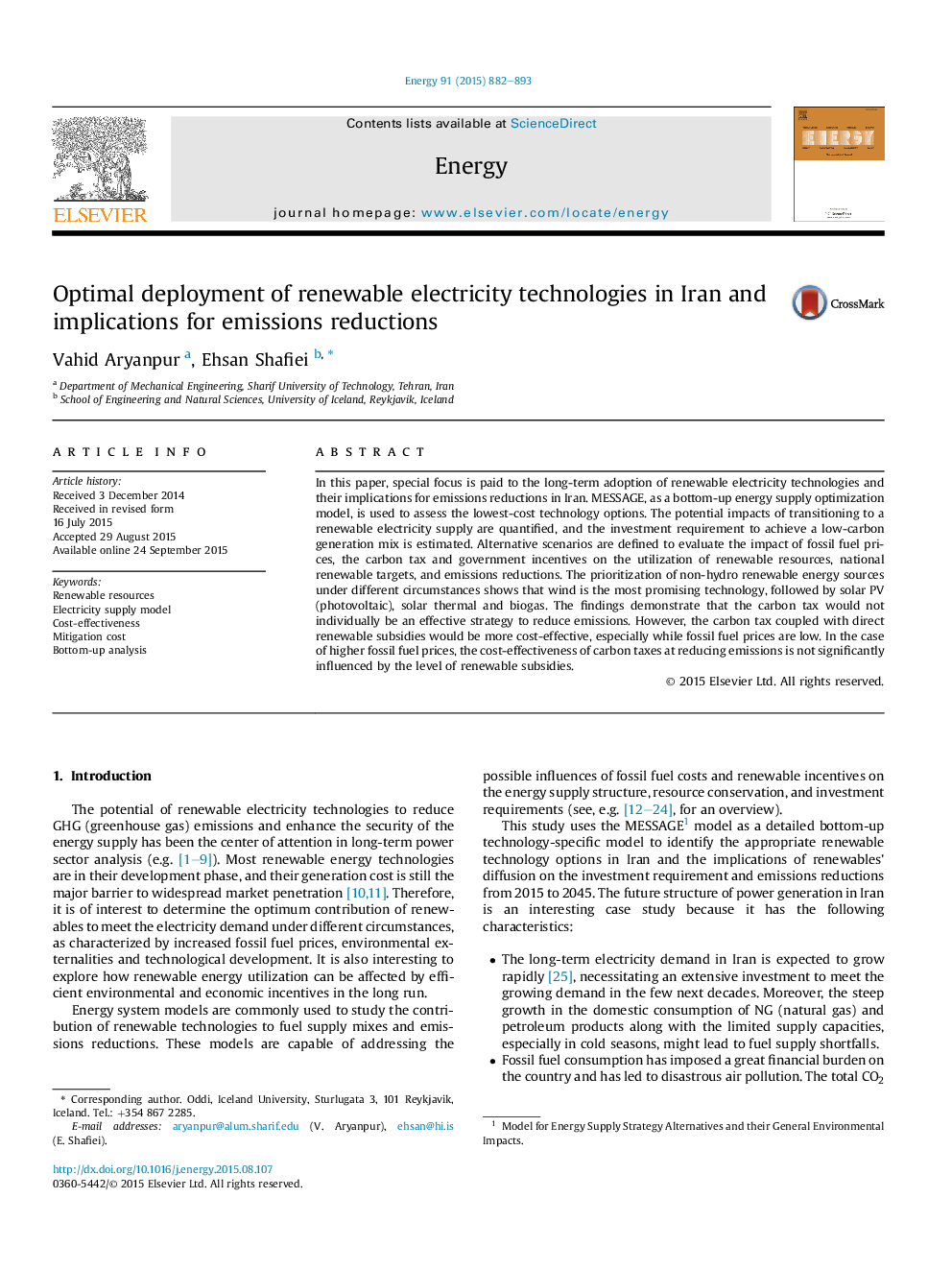| کد مقاله | کد نشریه | سال انتشار | مقاله انگلیسی | نسخه تمام متن |
|---|---|---|---|---|
| 1731543 | 1521455 | 2015 | 12 صفحه PDF | دانلود رایگان |
• Prospects for development of renewable electricity generation in Iran are explored.
• Scenario analysis is performed using bottom-up energy supply optimization model.
• Policies to achieve the specific renewable targets are evaluated.
• Cost-effectiveness of different policies at reducing CO2 emissions are evaluated.
In this paper, special focus is paid to the long-term adoption of renewable electricity technologies and their implications for emissions reductions in Iran. MESSAGE, as a bottom-up energy supply optimization model, is used to assess the lowest-cost technology options. The potential impacts of transitioning to a renewable electricity supply are quantified, and the investment requirement to achieve a low-carbon generation mix is estimated. Alternative scenarios are defined to evaluate the impact of fossil fuel prices, the carbon tax and government incentives on the utilization of renewable resources, national renewable targets, and emissions reductions. The prioritization of non-hydro renewable energy sources under different circumstances shows that wind is the most promising technology, followed by solar PV (photovoltaic), solar thermal and biogas. The findings demonstrate that the carbon tax would not individually be an effective strategy to reduce emissions. However, the carbon tax coupled with direct renewable subsidies would be more cost-effective, especially while fossil fuel prices are low. In the case of higher fossil fuel prices, the cost-effectiveness of carbon taxes at reducing emissions is not significantly influenced by the level of renewable subsidies.
Journal: Energy - Volume 91, November 2015, Pages 882–893
